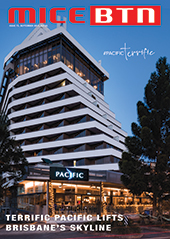Moves to push Australian and Chinese SAF industries
- BTN News
- Tuesday, 21 May 2024
Aviation experts from the University of South Australia (UniSA) will work with their Chinese counterparts over the next two years to develop a sustainable aviation biofuel industry in both countries.
The collaboration, confirmed by Australia's Department of Foreign Affairs and Trade (DFAT), comes on the back of a A$1.7 billion Federal Budget allocation to prioritise renewable fuels for the aviation industry over the next decade.
UniSA aviation professor Shane Zhang has been awarded a A$230,000 National Foundation for Australia-China Relations grant to lead the project, exploring the commercial opportunities of using bio feedstock to replace conventional kerosene jet fuels with ‘green’ fuel.
Sustainable aviation fuels (SAFs) are still in their infancy, accounting for less than one per cent of jet fuels world wide, although the European Union (EU), Singapore, the US and UK are moving towards mandating SAFs within the next few years.
Prof Zhang says the federal government budget announcement follows the establishment of the Australia Jet Zero Council in 2023 to deliver net-zero aviation in Australia, supported by a A$30 million funding injection.
“Sustainable aviation fuels can potentially cut carbon emissions by up to 80 per cent and are essential if we are to achieve net-zero greenhouse gas emissions in Australia 2050,” said Zhang.
The alternative liquid jet fuel is derived from several sources or feedstock, including waste oil and fats, woody residues, algae and municipal waste. It needs to be mixed with conventional fuel (50 per cent) to avoid any modifications to the engine and aircraft, in line with international regulations.
While these renewable fuels are not yet produced in Australia, Jet Zero Australia is working with US biotechnology company LanzaJet to build a new SAF facility in north Queensland, and Wagner Sustainable Fuels and Boeing Australia are also collaborating on a site in Toowoomba. The NSW government has pledged up to A$100 million to start local production.










